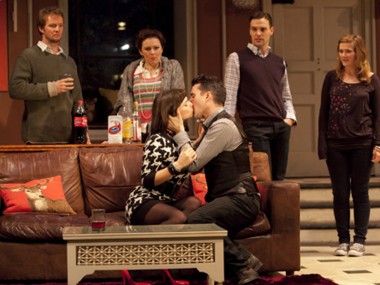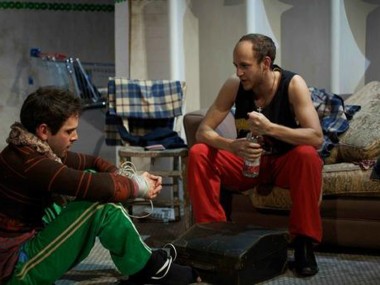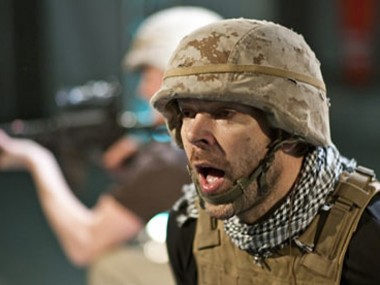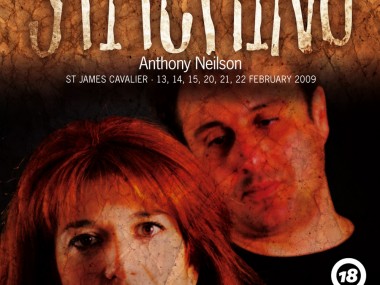Meat, Theatre 503
Tuesday 12th June 2012
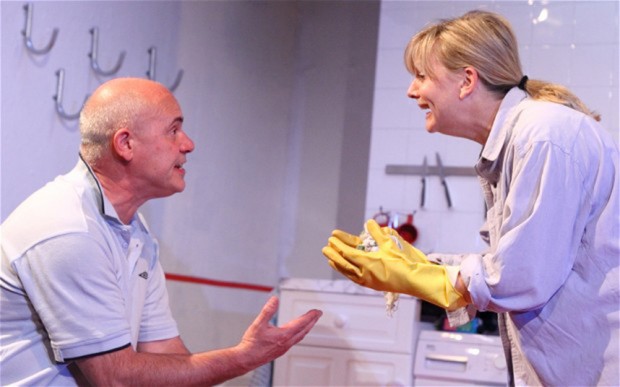
Let us now sing the praises of short play titles. These one-word miracles of concision are usually punchy, taut and — most importantly — tell you all you really need to know about what the play is all about. Theatre history delights in them: Saved, Comedians, Plenty, East, Bent, Victory, Penetrator and Blasted. Not to forget Debris and Shivered. Now, in this great tradition, we are able to sample the latest: Meat.
This is a serious new play by Jimmy Osborne, a graduate of the prestigious Royal Court Young Writers Programme. It starts off by introducing Vincent, an abattoir worker in a northern town who spends all day killing animals, skinning them, draining their blood and cutting them up. As usual, the pursuit of profit by his company means that he has to work longer hours and faster in order to maintain his income. At the same time, Vincent doesn’t have enough time for his wife, Joy, which causes domestic tensions. On top of this, their daughter, Carla, is a mouthy teen whose idea of a good time is binge-drinking the night away. When her childhood friend, Rob, now a violent youth, is murdered in a car park, the town goes into mourning, with the women competing to show their grief and mobs gathering to demand retribution.
The story quickly becomes one about guilt, grief and death. Vincent is an interesting character, a man who is very down-to-earth, but also close to the edge. Years of hard work have ground him down, and his frustrations with his barren home life threaten to get out of control as he threatens the yobs he meets on the streets. You just know that his vigilante attitude will lead to no good.
But, as the 100-minute play unfolds, you also become aware of an odd, uneven tone in Osborne’s writing. Some scenes are excellent, especially when a character lets us into their heads while they monologue, and the church scene when the town’s women bitch and compete while the victim, Rob, is buried, is highly effective. I also liked the ghost of Rob. But some of the writing is psychologically unconvincing and rather leaden.
Whenever Carla appears, her feistiness brings the play alive, but the family situation is not entirely imagined as well as it might have been. I thought some of the dialogues lacked believability, and the play’s ending is an attempt to tie up the loose ends that didn’t really work for me. Still, the overall vision of Vincent’s torment was effective, and the metaphor of the killer of animals who becomes dehumanised comes across powerfully enough.
Directed by David Aula, on James Cotterill’s versatile set, the play has some strong performances from Graham Turner’s Vincent, Tracy Babin’s Joy, Charlotte Whitaker’s Carla and Ian Weichardt’s Rob. Meat is composed of some powerful passages of writing and includes some strong metaphors, but, in the end, the production never manages to find a coherent enough aesthetic style to carry its message effectively.
© Aleks Sierz

